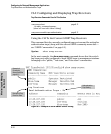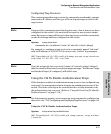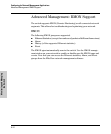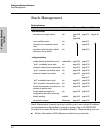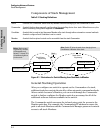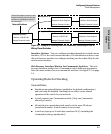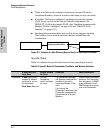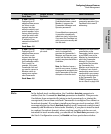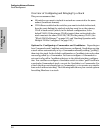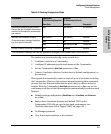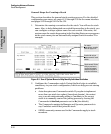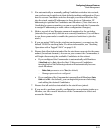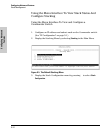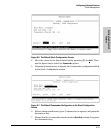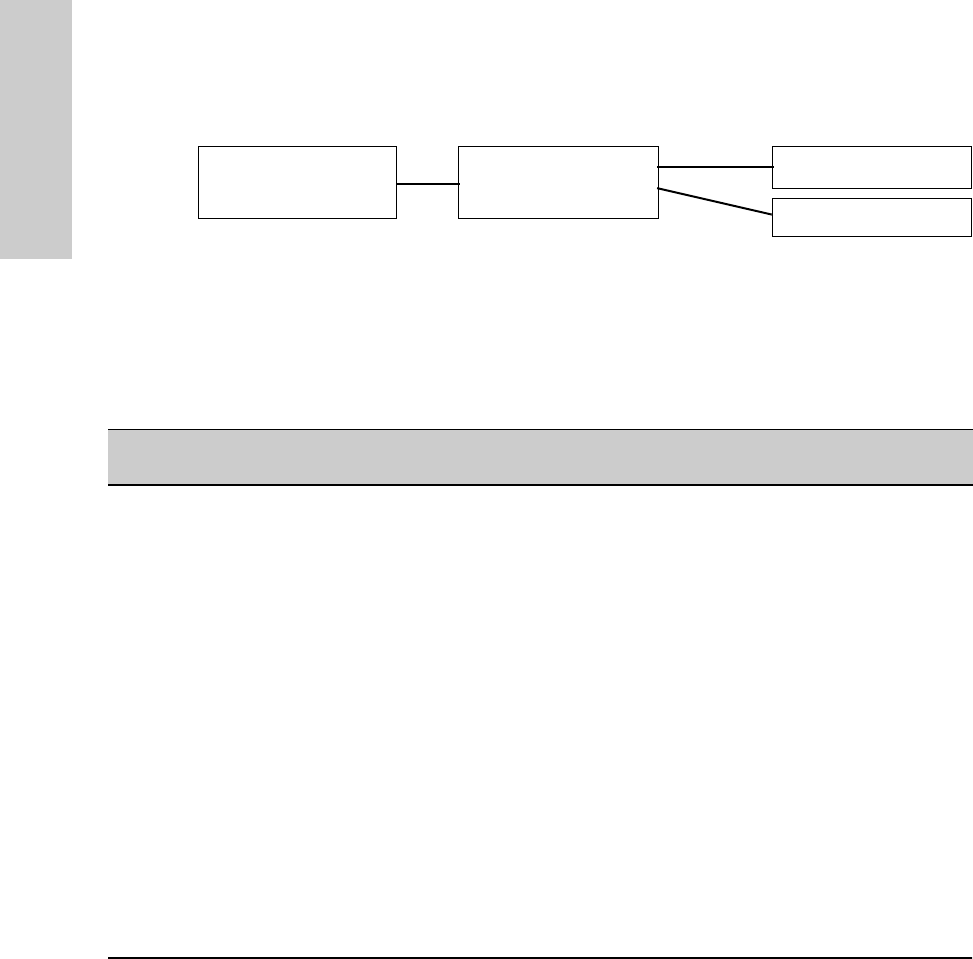
9-6
Configuring Advanced Features
Stack Management
Configuring Advanced
Features
■ There is no limit on the number of stacks in the same IP subnet
(broadcast domain), however a switch can belong to only one stack.
■ If multiple VLANs are configured, stacking uses only the primary
VLAN on any switch. In the factory-default configuration, the
DEFAULT_VLAN is the primary VLAN. (See “Stacking Operation with
Multiple VLANs Configured” on page 9-45 and “Which VLAN Is
Primary?” on page 9-51.)
■ Stacking allows intermediate devices that do not support stacking.
This enables you to include switches that are distant from the
Commander.
Figure 9-3. Example of a Non-Stacking Device Used in a Stacking Environment
Specific Rules
Table 9-2 outlines the specific rules for switches operating in a stack.
Table 9-2. Specific Rules for Commander, Candidate, and Member Switches
Commander Switch
Switch with Stacking
Disabled or Not Available
Member Switch
Candidate Switch
IP Addressing and
Stack Name
Number Allowed
Per Stack
Passwords SNMP Communities
Commander IP Addr: Requires an
assigned IP address
and mask for access
via the network.
Stack Name: Required
Only one
Commander
switch is allowed
per stack.
The Commander’s Manager
and Operator passwords are
assigned to any switch
becoming a Member of the
stack.
If you change the
Commander’s passwords, the
Commander propagates the
new passwords to all stack
Members.
Standard SNMP community
operation. The Commander
also operates as an SNMP
proxy to Members for all
SNMP communities config-
ured in the Commander.



